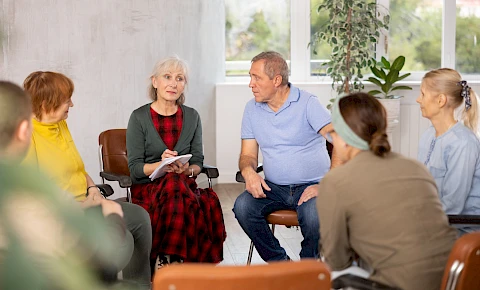
When the seasons change, many people experience shifts in their mood and energy levels. For some, these changes can be severe enough to impact their daily lives. This condition is known as Seasonal Affective Disorder (SAD). For seniors, understanding SAD is crucial, as they may be more susceptible to its effects. Senior Helpers Hendersonville aims to shed light on SAD, its symptoms, coping strategies, and when to seek professional help, especially for older adults and their caregivers.
What Is Seasonal Affective Disorder?
SAD is a type of depression that occurs at a specific time of the year, usually in the winter. Shorter days and reduced sunlight can trigger this disorder. Seniors may be more vulnerable due to changes in their daily routines and less access to outdoor activities. The prevalence of SAD among the senior population is significant. Dealing with challenges such as mobility issues and chronic illnesses can be further burdened by seasonal depression.
Symptoms of SAD in Seniors
Recognizing the symptoms of SAD in seniors is the first step toward getting help. Emotional symptoms include depression and persistent sadness, increased anxiety and irritability, and feelings of hopelessness or worthlessness. Physical symptoms often present as persistent fatigue or low energy, changes in sleep patterns like insomnia or oversleeping, and appetite changes, often craving carbohydrates. Behavioral symptoms may involve withdrawal from social activities, loss of interest in hobbies or previously enjoyed pastimes, and difficulty concentrating.
Coping Strategies for SAD
Managing SAD involves several strategies that can help alleviate symptoms and improve quality of life. Light therapy is one of the most effective treatments. Using a lightbox that mimics natural sunlight can help regulate mood by affecting brain chemicals linked to mood and sleep. Maintaining a routine helps a lot. Waking up and going to bed at the same time every day can help regulate your body's internal clock, making it easier to manage symptoms.
Engaging in social activities, like joining a club or planning regular visits with friends and family, can provide emotional support and reduce feelings of isolation. Dietary considerations and supplements can also play a role. Balanced nutrition with plenty of fruits, vegetables, and lean proteins can help maintain energy levels. Vitamin D supplements may be beneficial, especially during the winter months when sunlight exposure is limited.
When to Seek Professional Help
Sometimes, self-care strategies might not be enough, and you need to recognize when to seek professional help. If symptoms are severe, such as persistent depression or thoughts of self-harm, it's crucial to consult a healthcare provider. There are several types of professional help available. Therapy, especially cognitive-behavioral therapy (CBT), can be highly effective in treating SAD. Medication, such as antidepressants, might be prescribed to help manage severe symptoms. Medical professionals can offer personalized advice and treatment plans tailored to individual needs.
Senior Helpers Hendersonville Supports Seniors With SAD
Understanding Seasonal Affective Disorder and its impact on seniors is crucial. Recognizing the symptoms, employing effective coping strategies, and knowing when to seek professional help can make a significant difference. If you or a loved one in Hendersonville, Gallatin, Clarksville, Goodlettsville, or Cookeville needs assistance with daily activities, contact us at Senior Helpers Hendersonville. We are happy to help!